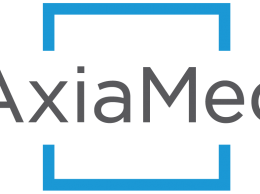By Midge Campbell-Thomas
According to the U.S. Bureau of Labor Statistics, in December 2019 there were 109,000 more women working than men, occupying 50.04% of positions. However, once the pandemic evolved, thousands of women left the workforce to accommodate responsibilities brought on by stay-at-home orders, which left them as full-time caregivers
According to the January jobs report, almost four times as many women than men left the workforce in January: 275,000 women, compared to 71,000 men. Overall, nearly 2.4 million women have exited the workforce since February 2020, compared with less than 1.8 million men.
Investing in women goes beyond equal pay and equal opportunities. Today’s commitment requires a comprehensive approach, which can include anything from supporting young girls who seek high paying, fulfilling careers, to mentoring women who want to start a business, to ensuring career development opportunities are offered at every level.
A snapshot of Bank of America’s current employee demographics shows that women make up 50% of our global workforce, 32% of our global management team, more than 40% of our managers and 35% of our board of directors—exceeding industry benchmarks.
While no one formula can equally be applied to all companies, Bank of America has made a commitment to continue to invest every day in helping make meaningful contributions within our company and in communities at large.
For example, the bank partners with more than 350 colleges and universities around the world to recruit diverse talent, and our most recent summer intern class was 47% female. We also have programs designed specifically to support the retention and career development of female employees and other professional development opportunities.
But an effective diversity and inclusion program goes beyond recruitment and development and includes progressive workplace policies and benefits, so all employees feel supported in managing responsibilities at work and at home. For example, offering paid parental maternity, paternity and adoption leave, as well as childcare reimbursement and support for employees caring for aging parents helps employees manage life events.
Businesses may also want to consider going the extra mile to help address the personal impacts the coronavirus health crisis is having on employees and their families through additional support, such as offering childcare reimbursement, adult care services and by offering resources, support and expertise to help manage these responsibilities.
And companies are finding other ways to put women on a path to economic stability and success. For instance, throughout the Central Coast, Bank of America partners with Women’s Economic Ventures and sponsors the “Charting Her Course” podcast, in collaboration with the Pacific Coast Business Times, to highlight women entrepreneurs in the area, Mission Community Service Corporation’s Women’s Business Center, and even the Girl Scouts.
• Midge Campbell-Thomas is the Ventura and Santa Barbara market president at Bank of America.






 Print
Print Email
Email
















